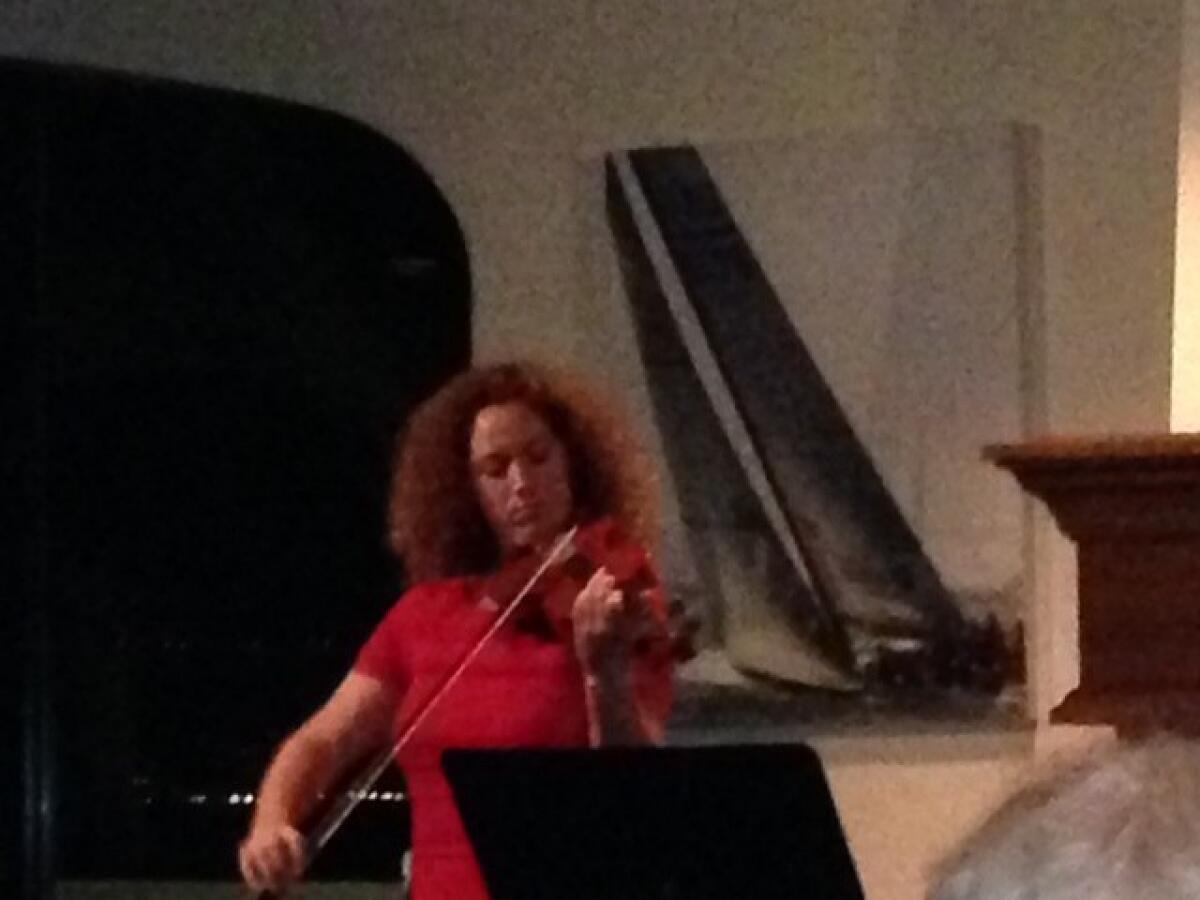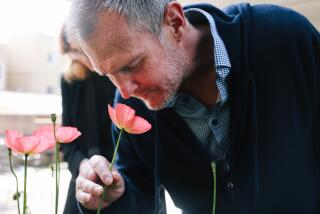A journey from mental illness to music and a standing ovation

SAN FRANCISCO -- Kim Knoble donned a bright red dress Wednesday and strode with confidence to the front of a room packed with judges, politicians and mental health advocates.
By the time she lowered the bow from her violin, many in the audience were crying. A standing ovation followed.
Knoble, 31, is one of countless people whose lives have been upended by severe mental illness. But she is among the fortunate.
With help from San Francisco’s Behavioral Health Court two years ago, Knoble found herself not in prison -- where she was headed after committing a violent crime while off her medications -- but instead surrounded by a team of treatment specialists who have helped her thrive.
The poised young woman, whose story was recently featured in The Times, told it in her own words Wednesday to an audience gathered at the St. Francis Yacht Club to celebrate the court’s 10-year anniversary.
First: a promising Marin County childhood, accolades for her musical talents, a seat in the prestigious San Francisco Symphony Youth Orchestra and a full scholarship to UC Irvine. Then: illness, addiction, more than 20 psychiatric hospitalizations and homelessness.
“We thought we had lost her,” Knoble’s older sister, Lisa Wood, said after the event, tears streaming past her smile.
The event offered a closer look at a model that California court officials have urged each county to adopt. A 2010 study examined San Francisco’s program along with three others nationwide and found that although it served the highest proportion of participants with schizophrenia and the greatest percentage who committed crimes against people rather than property, it showed the greatest drop in rearrests compared with control groups — 39% to 7%.
It was founded by San Francisco Superior Court Judge Kay Tsenin, who accepted an award Wednesday evening and spoke of watching the same defendants cycle through her courtroom over and over because of illness. After one young woman released to a group home missed a court hearing, Tsenin learned she had jumped from the Golden Gate Bridge.
“It got me to thinking, ‘What if?’” Tsenin said. “What if we had services that could follow up on these defendants? What if we could even make them better? What if we thought of justice as something other than incarceration?”
Tesnin collaborated with Deputy Public Defender Jennifer Johnson, Assistant Dist. Atty. Cynthia Johns and Kathleen Connolly Lacey, who directs the forensic program for Citywide Case Management. With no funding and little fanfare, they just did it, prompting others in the hulking Hall of Justice to refer to it as a “secret court.”
A number of judges have since held the mantle. Whereas Tsenin originally envisioned helping 10 or 20 defendants, the court now monitors intensive community treatment of about 140 at any given time. All have serious mental illness and have committed felonies.
Lacey, who along with Johnson remains involved, offered a glimpse of the case managers’ role: They pick clients up from jail to ensure they get to their housing, attend medical and dental appointments with them, arrange for educational and vocational support and make sure clients are seeing their psychiatrists.
If a landlord has trouble with a disruptive client, the social worker shows up to do damage control. If clients tank, they get them hospitalized -- against their will if need be.
Inside the courtroom, there is regular applause for those who do well, and a perspective on success unusual for the criminal justice system. Johnson recalled taking delight in watching one judge congratulate a client for smoking marijuana -- a marked improvement over the crack he usually sought out in relapse.
Forensic psychiatrist George Woods, who co-teaches a law school class with Johnson, said the court’s success offered an important lesson: that psychiatric medication is only one piece of a formula for healing.
“We have to look at potential in addition to pathology,” he said. “To be treated is just the start. To live your life, that’s why we are all here.”
Knoble agreed: The program, she told the audience, “helped show me that I still had a chance -- because my life matters.”
Then she picked up her instrument -- given to her a year ago by community members -- and played Jules Massenet’s “Meditation from Thais.”
ALSO
9th Circuit wrestles with American flag shirts and free speech
DMV investigators target misuse of placards for the handicapped
Councilman Jose Huizar says he had ‘consensual relationship’ with aide
Twitter: @leeromney
More to Read
Start your day right
Sign up for Essential California for news, features and recommendations from the L.A. Times and beyond in your inbox six days a week.
You may occasionally receive promotional content from the Los Angeles Times.







